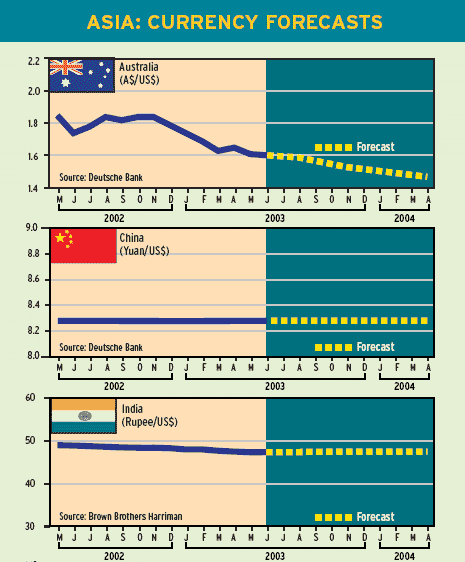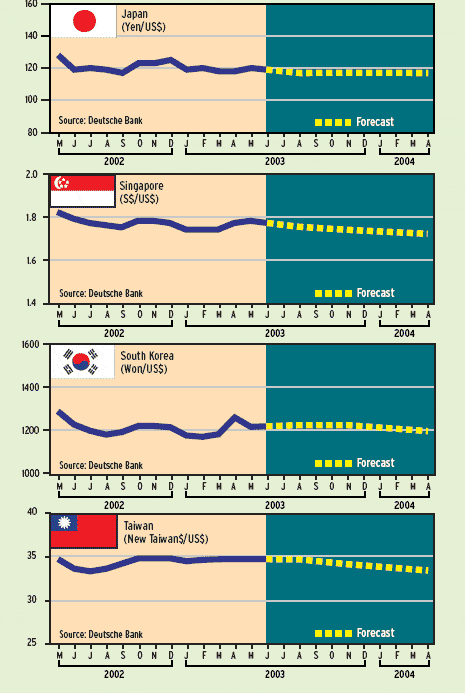ASIA
Hong Kongs budget deficit keeps getting bigger, while deflation has been consistently underestimated, analysts say.
The special administrative regions fiscal reserves have fallen by 30% from their peak in 2001 and are likely to drop another 15% in 2003, says James Malcolm, Singapore-based currency strategist at JPMorgan Chase.
While the Hong Kong dollars peg to the US dollar may not have caused Hong Kongs current economic situation, the currency regime has exacerbated the problem, Malcolm says.The exchange rate cannot be used to soften the impact of price declines on the real economy.
For an economy now flirting with embedded deflation, the arrangement clearly does not allow sufficient domestic policy flexibility, Malcolm says.
He estimates that a devaluation in the Hong Kong dollar in the region of 30% could be required to lift the consumer price index back into clearly positive territory.
If Hong Kong does opt for a major devaluation, he adds, it could consider a currency regime closer to that followed by Singapore. This would involve re-pegging the Hong Kong dollar to a basket of currencies, giving the monetary authorities more flexibility to deal with external shocks and structural changes, Malcolm says.
When uncertainty is high, the trading band could be widened or suspended altogether, he adds.And phases of independent monetary tightening or easing could be achieved by allowing the Hong Kong dollar to appreciate or depreciate gradually against the basket. Under the current system, 7.8 Hong Kong dollars are equivalent to one US dollar, and since there are no exchange controls, interest rates in the two currencies normally move up and down together.


Gordon Platt



